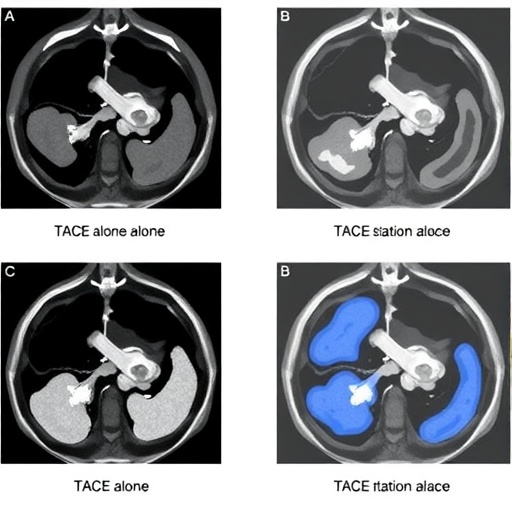PROTECT YOUR DNA WITH QUANTUM TECHNOLOGY
Orgo-Life the new way to the future Advertising by AdpathwayThe Taiwan Precision Medicine Initiative: Revolutionizing Genetic Research for Han Chinese Populations
In the realm of global genetic research, there remains a significant imbalance in the representation of various ethnic groups. Despite Han Chinese individuals constituting nearly 20% of the world’s population, they have been starkly underrepresented in genetic studies. This glaring disparity has prompted urgent calls for the establishment of large-scale cohorts tailored to this demographic, essential for advancing the field of precision medicine. Addressing this critical need, the Taiwan Precision Medicine Initiative (TPMI) emerges as a groundbreaking effort spearheaded by Academia Sinica in partnership with sixteen leading medical centers across Taiwan.
The TPMI has succeeded in enlisting a staggering 565,390 participants, each consenting to provide DNA samples alongside granting researchers access to their electronic medical records (EMR). This dual consent enables a comprehensive integration of genetic data with clinical histories, creating a robust platform for both retrospective and prospective analyses. Notably, this enables longitudinal tracking of health outcomes, a pivotal feature that sets TPMI apart in studying disease progression and treatment efficacies over time.
One of the cornerstones of TPMI’s methodology is the use of population-optimized single nucleotide polymorphism (SNP) arrays designed specifically for individuals of Han Chinese ancestry. These arrays allow exhaustive genome-wide association studies (GWAS), which can identify genetic variants linked to disease susceptibility and drug response unique to this population. By deploying such customized genetic tools, TPMI ensures greater accuracy and relevance in its findings compared to generalized genomic arrays designed primarily for European ancestries.
Beyond GWAS, TPMI’s rich dataset supports phenome-wide association studies (PheWAS), a systematic approach to explore the relationship between genetic variants and a broad spectrum of phenotypes documented in EMRs. This multi-dimensional analysis pushes the boundaries, facilitating the discovery of novel genotype-phenotype correlations that can inform both diagnostics and therapeutic interventions unique to the Han Chinese population.
A third pillar of TPMI’s genetic research framework is the development and validation of polygenic risk scores (PRS). These scores aggregate the effects of multiple genetic loci to estimate an individual’s predisposition to common diseases such as diabetes, cardiovascular disease, and various cancers. By recalibrating PRS specifically for Han Chinese genetic architecture, TPMI enhances the predictive power and utility of these scores, thus pushing precision medicine closer to clinical practice in Taiwan and potentially across East Asia.
An innovative aspect of TPMI lies in the participants’ willingness to be recontacted. This unique feature fosters a dynamic research environment, allowing the cohort to be actively engaged in follow-up studies and clinical trials. Moreover, participants receive personalized genetic risk profiles, accompanied by tailored health management recommendations. This bidirectional communication model exemplifies forward-thinking participant engagement and promotes translational outcomes that benefit individual and public health.
The TPMI Data Access Platform (TDAP) operates as the centralized hub for securing and analyzing the vast troves of genomic and clinical data. This platform is not only designed with cutting-edge security protocols to protect participant confidentiality but also equipped with advanced computational tools that facilitate research collaborations. TDAP democratizes access for academic researchers, accelerating discoveries and ensuring that data are harnessed to their maximum potential.
TPMI’s establishment is particularly notable for merging genetic profiling with EMR data on an unprecedented scale for a non-European ancestry cohort. This expansive integration allows for rigorous validation of genetic risk prediction models across diverse clinical contexts and supports the conduction of clinical trials based on risk stratification. Such trials hold promise to revolutionize health management by shifting focus from reactive treatment to preventive care grounded in genetic risk.
Clinically, TPMI’s resource enables an unprecedented opportunity to examine pharmacogenetic responses among Han Chinese populations, a relatively understudied area resulting in suboptimal drug dosing and efficacy in this group. By elucidating genetic markers associated with drug metabolism and adverse reactions, TPMI paves the way toward safer, more effective personalized therapies.
From a policy perspective, findings derived from TPMI hold critical implications for shaping health care guidelines and resource allocation in Taiwan and potentially throughout East Asia. The initiative sets a compelling precedent for precision medicine strategies tailored to specific population genetics, highlighting the necessity of inclusive genomic research that embraces ethnic diversity.
With its scale, scope, and innovative design, the Taiwan Precision Medicine Initiative represents a landmark in global genomic research. It not only addresses the historical underrepresentation of Han Chinese individuals in genetic studies but also propels precision medicine into a new era where population-specific insights drive improvements in disease prevention, diagnosis, and therapeutic strategies.
In summary, TPMI stands as a model for how synergy between advanced genomics, comprehensive clinical data, and participant-centered approaches can transform medical research and health care delivery. As the cohort continues to grow and data accumulate, TPMI is poised to contribute seminal discoveries to the scientific community and reshape the global landscape of precision medicine.
Subject of Research:
The research focuses on creating and utilizing a large-scale, population-specific cohort of Han Chinese individuals to advance genetic studies, precision medicine applications, and health outcome predictions by integrating genome-wide data with electronic medical records.
Article Title:
The Taiwan Precision Medicine Initiative provides a cohort for large-scale studies.
Article References:
Yang, HC., Kwok, PY., Li, LH. et al. The Taiwan Precision Medicine Initiative provides a cohort for large-scale studies. Nature (2025). https://doi.org/10.1038/s41586-025-09680-x
Image Credits: AI Generated
Tags: Academia Sinica medical collaborationdisease progression studiesdual consent DNA sampleselectronic medical records integrationgenetic research Han Chinese populationslarge-scale genetic studieslongitudinal health outcome trackingpopulation-optimized SNP arraysPrecision Medicine Advancementsrepresentation in genetic researchTaiwan Precision Medicine Initiativetreatment efficacy research


 2 hours ago
3
2 hours ago
3





















 English (US) ·
English (US) ·  French (CA) ·
French (CA) ·